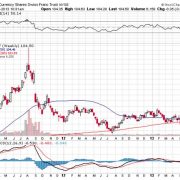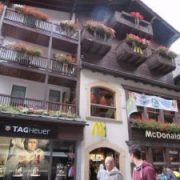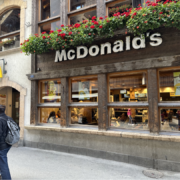My Big Miss in Switzerland
I have got a lot right in the markets lately, especially this year, when 90% of my Trade Alerts went well. But as they say in karate school in Japan, you can?t block all the punches. I certainly missed the opportunity of a lifetime to load up on the stocks of a certain country, which I am about to visit. I?ll give you a hint up front: think edelweiss.
Yes, you guessed it. The Swiss economy has been barely eked out any positive GDP growth ever since Europe began its meltdown a few years ago. Q1, 2013 saw a gain of 0.6%, bringing the year on year figure to a lackluster 1.1%.
While broad swaths of the economy are weak, chemicals, pharmaceuticals, precision instruments, watches and jewelry, the things the Swiss are best at, seem to be holding their own. But it makes America?s 2.5% rate look positively robust by comparison.
Switzerland is certainly a country with many attractions. It is home to world-class companies, like, Nestle, Roche, Novartis, and Swatch. It has perennially run a strong current account surplus. Its 347 banks control assets amounting to seven times the country?s GDP, and account for 40% of stock market capitalization (compared to 10% in the US).
Despite shunning membership in the European Community, it has developed a first class export industry. It is not all about watches, cheese, cowbells, and Swiss army knives.
None of this explains why the Swiss franc has been so weak. Since the August, 2011 peak, the Swiss Franc has plunged by a gut churning 28%, and has been one of the world?s weakest currencies against the greenback. Note that the ETF (FXF) is priced in the inverse to the cash market, meaning that it takes $1.05 to buy one Swiss franc. To give you some long-term perspective on this, the dollar is now 72% cheaper than when I first visited this alpine paradise 43 years ago, when it cost SF3.00 to purchase a buck.
As strong as the fundamentals are for Switzerland, they have nothing to do with the strength of the currency. It has long been the flight to safety currency of choice for Europeans. While a director of Swiss Bank Corporation, I personally saw gold bars imprinted with the German eagle secreted there by high-ranking Nazi?s and never reclaimed. This is one theory why the Germans didn?t invade Switzerland during WWII.
Later, asset-protecting investors believed that the Swiss Army?s formidable mountain redoubts could hold the Soviet army at bay. To this day, there are still formidable stockpiles of weapons in the basements of the big Swiss banks, and most of the senior staff double as army officers.
One reason the Swiss franc has been a speculative target is that the country has a Lilliputian GDP of $635 billion, only 4.1% of America?s.
In 2011, the country faced a major currency crisis, as fears of a dollar and euro collapse drove the Swiss franc to an unbelievable all time high of 70 centimes to the dollar. While I was there during the summer, the local newspapers were chock full of stories about factory closings and mass layoffs. The strong Swiss franc was rapidly driving the economy out of business. Much business decamped for Germany, where the cost of production was denominated in far cheaper euros.
In September, 2011 the Swiss National Bank took drastic action. It immediately devalued the Swiss franc against the euro by 10%, and then pegged it there, vowing to spend whatever it takes to maintain the cheaper rate. It took on all comers.
The bold strategy was a huge success, as you can see from the charts below. Some friends at the central bank tipped me off that action was imminent, enabling me to get my readers into the most successful Trade Alert since the inception of this service. Over the course of a weekend, they made close to 400% on Swiss franc puts.
Here comes my big miss. I didn?t execute the second half of the trade. Basic Macro Hedge Trading 101 tells us that weak currencies are always great for local stock markets. That was definitely the case in Switzerland, where the equity ETF (EWL) has since posted an eye popping 55% return. That makes it one of the top performing European bourses, despite its feeble economy.
Did I do the trade? Nope? Perhaps one 4X gain in Switzerland was enough?
As penance for my oversight, I shall be punished severely. When I visit Switzerland in a few weeks for a fresh round of high altitude climbing, the mountains will no doubt claim their share of blisters, cuts, and rope burns. A hangover or two as well may enter the picture, as well. Those guides drink like fish.
At least the fondue, r?sti potatoes, raclette, and schnapps will be cheaper.












